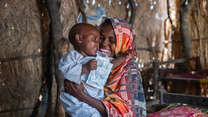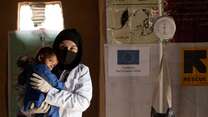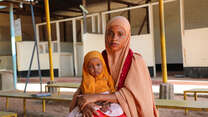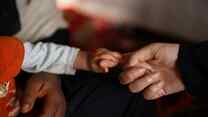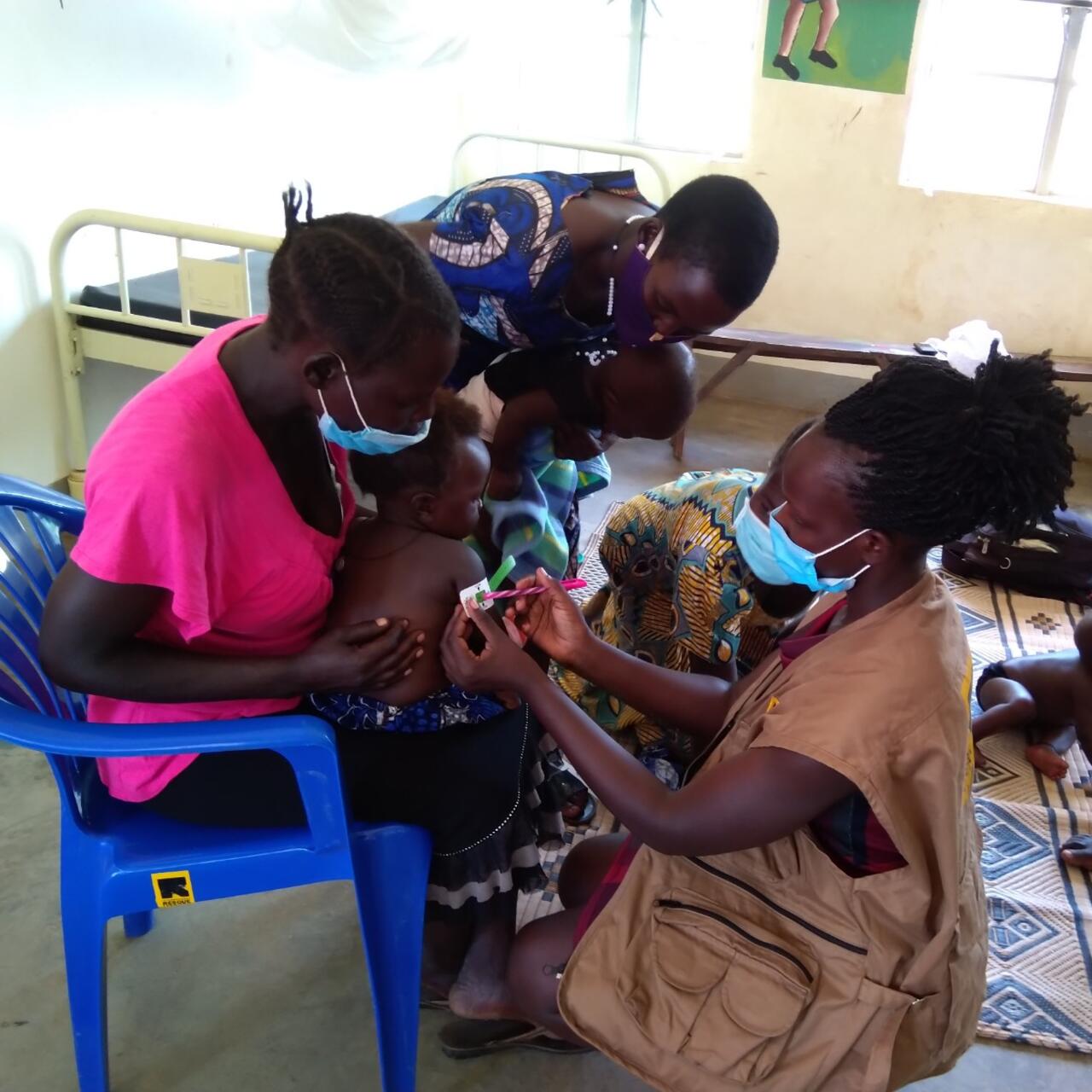
By the time mothers bring their malnourished children to the IRC health facility in the Imvepi refugee settlement, in the north-westpart of Uganda, they are often deeply worried because their child is in an extremely weakened state. As the IRC nutrition assistant that meets them, Esther, 28, gives hope to these mothers, letting them know she is there to support their child and to help provide the critical care they need.
Originally from northern Uganda, Esther has been working with the IRC at the Imvepi refugee settlement since 2020, providing specialised care and nutrition assistance to children under 5 and pregnant and lactating mothers. Her patients come from refugee families, who’ve fled conflicts in South Sudan and the Democratic Republic of Congo, as well as from the host community.
“The most difficult aspect about my job is that I really work with very vulnerable children. Children that are marginalised just because [they cannot access food]. So you find it really so hard to comprehend,” she says.
At the health facility funded by the European Union (EU), Esther and her team deliver urgent care to children with severe acute malnutrition who are experiencing life-threatening complications. This includes giving their young patients medication and putting them on a multi-day nutrition regimen that helps them regain their strength.
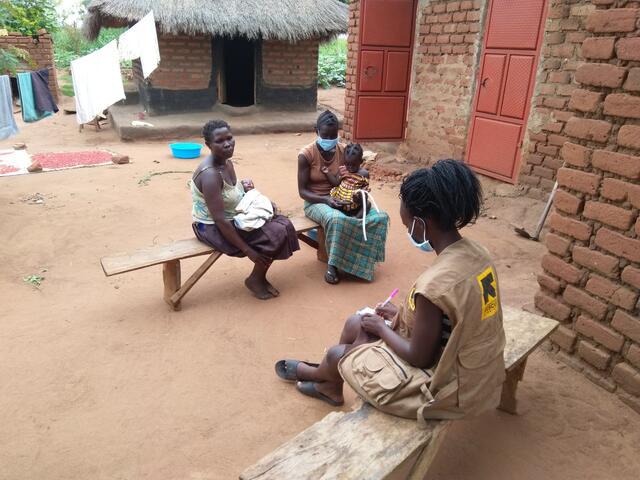
Esther and her team also operate as a mobile health clinic, providing nutrition assistance to children with severe or moderate acute malnutrition through weekly house visits. The mobile health clinic is a vital resource for families who live in remote areas and are in need of medical care and nutrition support.
Providing emergency care for malnutrition
One case that stands out for Esther is that of Ali, a three and a half year old boy who is from the Imvepi refugee settlement. He had been gradually losing weight after repeatedly getting sick and losing his appetite. Initially treated at home for malnutrition, his condition took a turn for the worst as he experienced days of vomiting, diarrhea, cough, oral thrush, and loss of appetite.
After being rushed to the health facility, Ali was diagnosed with severe acute malnutrition, along with malaria and severe dehydration. IRC health workers immediately started him on therapeutic feeds and medical treatment for three days. Ali was then referred to a regional hospital where he received further treatment.
When Ali was discharged, he continued to receive nutrition assistance in the form of a ready-to-use-therapeutic food, which gives children the vitamins and nutrients they need to recover from malnutrition. Today, he is at a healthy weight, playing well, and thriving.
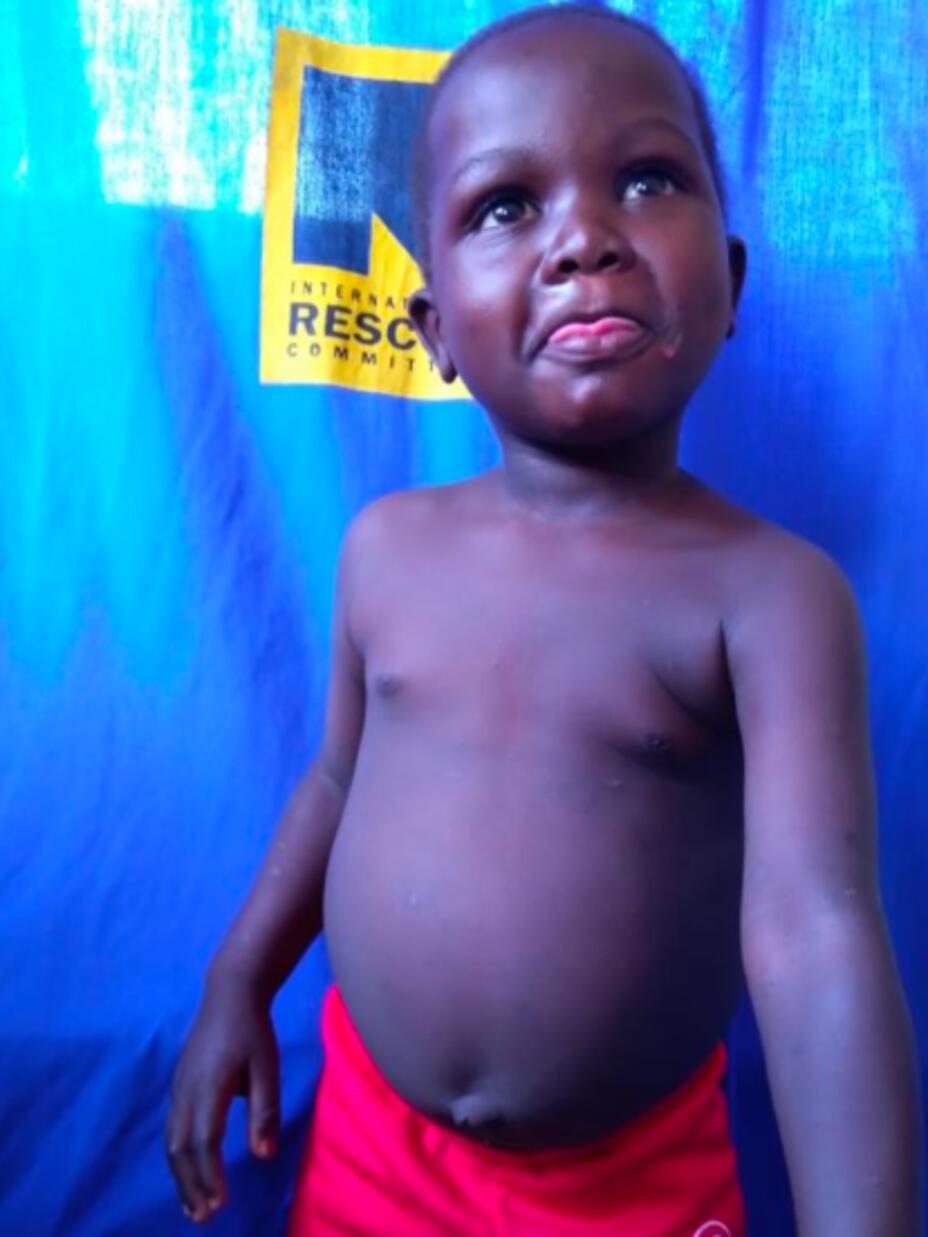
For Esther, the most rewarding part of her job is seeing the improvement in a child’s health and the positive change it brings to their life. She also enjoys seeing the mother’s reaction once her child has fully recovered. “You'll see the joy of both the mother and the child,” she shares. “This is [another] rewarding part - to see a mother regain her joy.”
Raising health awareness as a preventative measure
In Uganda, a prolonged drought, rising food costs, and an ongoing refugee crisis have contributed to a widespread increase in hunger. In addition to food insecurity, the country has been prone to various disease outbreaks, including Ebola, yellow fever, cholera, and Rift Valley fever, a mosquito-borne virus that originates from infected animals and can be transmitted to humans.
With the support of the EU, the IRC has been able to expand its impact in Uganda, providing primary health and nutrition services and improving preparedness and responses to epidemics.
At the IRC health facility, Esther has been on the front lines combatting both malnutrition and common diseases among the refugee and host community population. Most recently, she has seen an uptick in anemia cases and is often the first to assess patients for the blood condition.
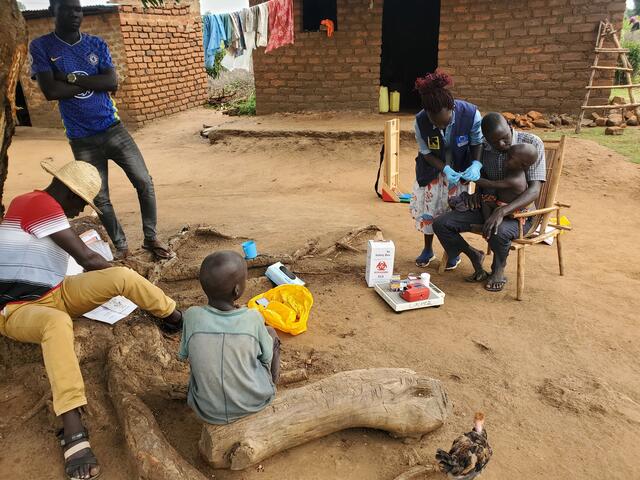
Additionally, Esther has taken the lead on providing health education workshops. She and her team offer cooking and gardening lessons, as well as counselling sessions, to help mothers prevent malnutrition at home. They also do health awareness sessions in the community so families can recognise signs of malnutrition, anemia, and other diseases.
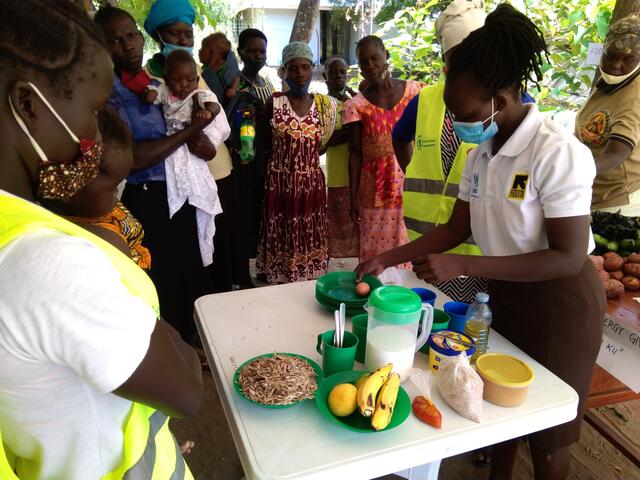
As Esther promotes ways to stay healthy, good nutrition is always key. “Good nutrition means a good immunity. So when someone has good nutrition, they're able to overcome some of the illnesses that come about their bodies,” she explains. “They are able to fight against those illnesses.”
The International Rescue Committee partners with the European Union to provide life-saving support to people caught in conflict and disasters around the world. Our work funded by the EU enables people to survive, recover and rebuild their lives.

